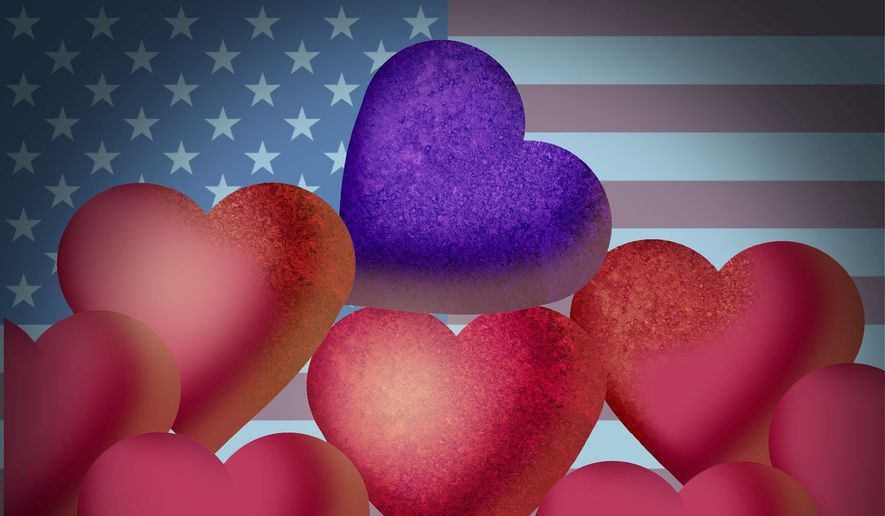OPINION:
As America continues to strengthen the care we provide to those who have gone to war on behalf of our nation, we must recognize that for too long we have overlooked the most valuable individuals entrusted with the well-being of our wounded, ill and injured veterans. Nearly five-and-a-half million spouses, parents, children and other loved ones have voluntarily put their lives on hold to provide our returning service members with a trusted continuum of care that could not be replicated without them. Many of them will provide this care for years, if not decades to come.
Military and veteran caregivers proudly serve in this role out of an unquestioned commitment to their loved ones. Yet the tremendous demands they face, coupled with a nation long unaware of the responsibilities they shoulder, have resulted in many of these hidden heroes feeling vulnerable, overwhelmed and defeated.
Sen. Elizabeth Dole first alerted our nation to the totality of the contributions and challenges of military and veteran caregivers when her foundation announced the results of its 2014 RAND report, providing a nationwide, comprehensive look at this invaluable yet fragile population. RAND’s experts estimated that those caring for our service members and veterans provide nearly $14 billion worth of unpaid services each year — a cost that would otherwise be passed on to our nation. And we cannot even begin to put a price tag on the level of trust our veterans place in these caregivers, particularly those veterans suffering from unseen injuries.
Tragically, caring for those suffering from the scars of war takes an enormous toll. America’s hidden heroes face increased instances of mental and physical health problems, chronic absenteeism at work, deteriorating personal relationships, legal and financial troubles, and feelings of isolation. The message sent by the foundation’s study is clear — our nation needs to be doing more to support those caring for our wounded, ill and injured warriors.
To ensure the U.S. Congress does its part, we have each taken the lead on bipartisan initiatives that will help strengthen the services offered to caregivers, including the launch of the Hidden Heroes Congressional Caucus and the introduction of the Military and Veteran Caregiver Services Improvement Act. The caucus, established last year with House Democratic Leader Nancy Pelosi’s fellow co-chairmen, Sens. John McCain and Jack Reed, and Rep. Jeff Miller, was a call to action for our friends and allies on Capitol Hill to help us continue building awareness and inspiring change both in Washington and across the nation in support of the hidden heroes taking care of those who cared for us.
The Military and Veteran Caregiver Services Improvement Act of 2015, first introduced by Sen. Patty Murray, co-sponsored by Sen. Collins, and sponsored in the House by Rep. Jim Langevin, directly responds to the issues brought to light by the Elizabeth Dole Foundation. Some of the most significant elements of the bill include additional transfer options for the post-September 11 GI Bill, expanded eligibility for the U.S. Department of Veterans Affairs caregivers program, more comprehensive child care services, and flexible work arrangements for federal employees who are also caregivers. The bill also reauthorizes the Lifespan Respite Care Act, which will provide desperately needed relief to caregivers, particularly those who provide 24-hour care.
The progress we can inspire from Capitol Hill stands to make a significant difference in the lives of our military and veteran caregivers, but our nation’s support of America’s hidden heroes must also emanate from every town and city across America. Just as public, private, nonprofit and faith communities have all rallied around our veterans, all Americans must consider what they can do better support their caregivers. Employers can adapt their work schedules and leave policies, houses of worship can establish family support and respite programs, health care providers can incorporate caregivers into the health care team, lawyers can assist with long-term legal planning, and individual Americans can assist with everyday tasks, just to name a few.
The most immediate action we can all take is to learn more about military and veteran caregivers, particularly those who live in our hometowns. In May, the Elizabeth Dole Foundation brought more than 70 caregivers to Washington, D.C. to speak with their members of Congress. The caregivers from our home states told incredibly powerful stories. One of these caregivers said she keeps track of nearly every daily task her husband has to complete, including having to remind him to eat as he can no longer sense the feeling of hunger. Another caregiver has endured the pain of seeing her husband ignore their kids for days at a time and exploding into angry fits that result in broken furniture and holes in the walls. These hidden heroes support veterans who barely survived infamous attacks in Iraq and Afghanistan, and those suffering from the memories that linger from the battlefields of Vietnam.
Military and veteran caregivers such as these selfless individuals live in every state across the nation. We should honor our commitment to veterans by answering Mrs. Dole’s call to better serve their caregivers. They face obstacles that are overwhelming and vast, yet solvable. By working together, across aisles and sectors, with the involvement of national organizations and grateful individuals, we can rescue our hidden heroes from the shadows and ensure they have the support that they so desperately need and deserve.
• Sen. Susan Collins is co-sponsor of the Military and Veteran Caregiver Services Improvement Act of 2015. Democratic Leader Nancy Pelosi is co-chairman of the Hidden Heroes Congressional Caucus for Military and Veteran Caregivers.




Please read our comment policy before commenting.